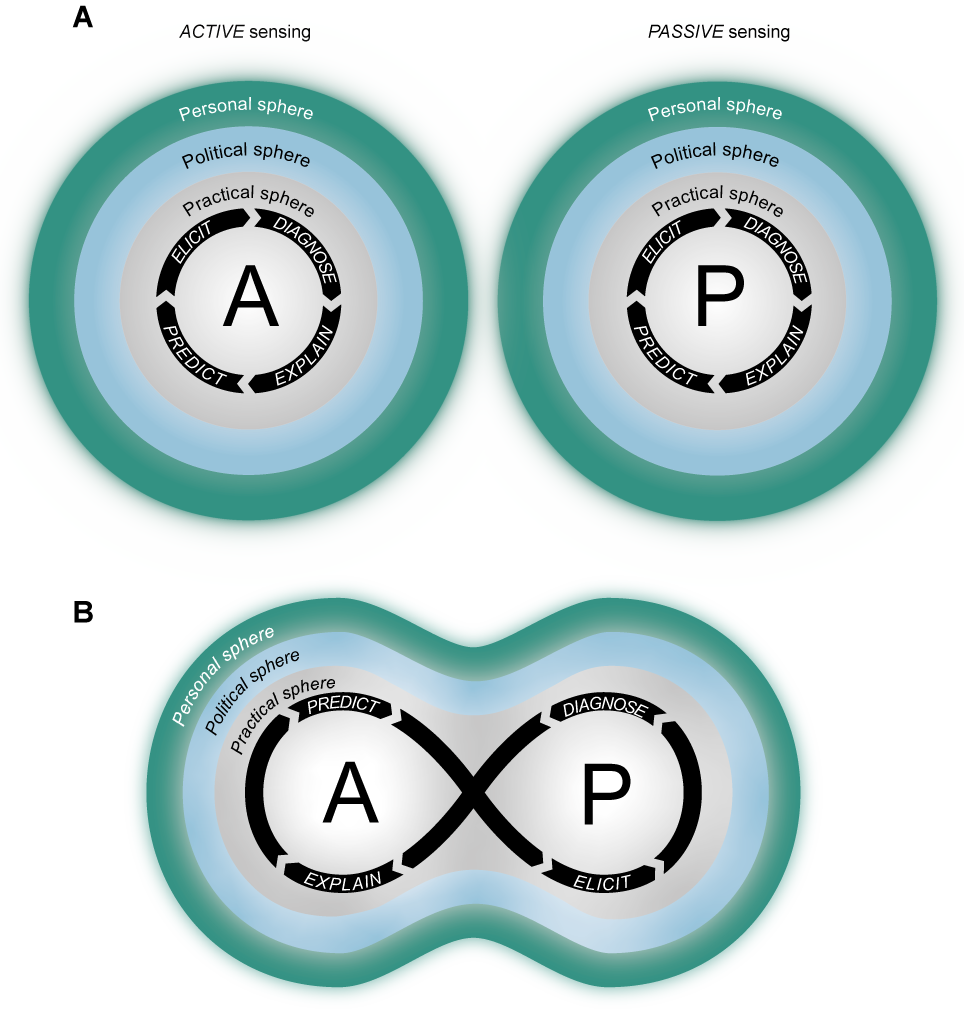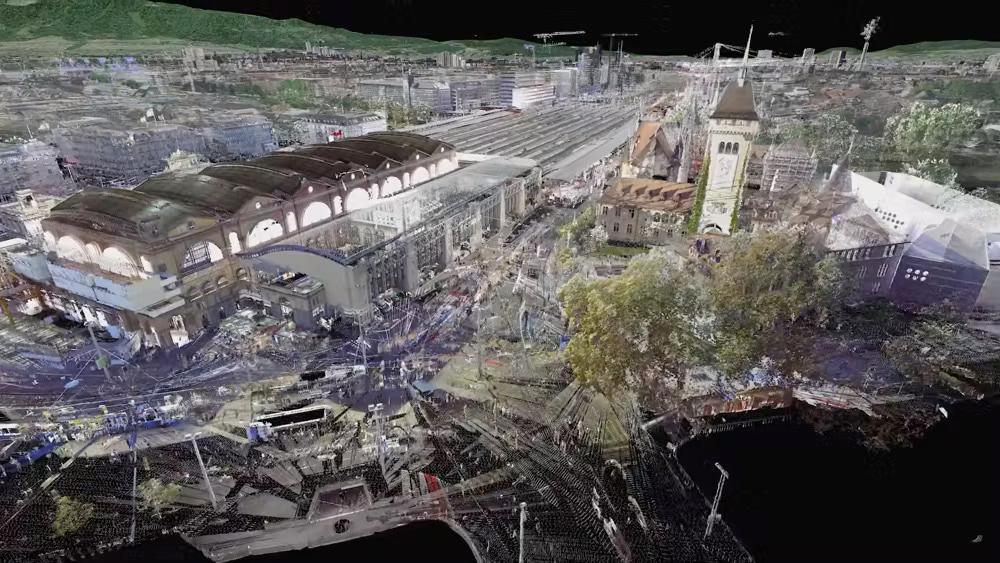Urban sustainability transformation needs active integration of passive and active sensing
Published in Sustainability

Recent years have seen a massive development of sensors, from Earth Observation and geospatial mobile big data to sensing systems allowing to capture and monitor human presence, action and even intention. While these sensing systems promise many new opportunities to drive urban transformation towards sustainability, they are forecasted to escalate data-driven decision-making. We thus asked ourselves: How can we harness these sensing systems to steer urban transformation towards sustainability?
Drawing on four global urban case examples, we conceptualized the interactions between various types of sensing systems and highlighted their risks and benefits for stakeholders. We observed that, when there is a two-way dialogue between passive and active sensing, goals are negotiated and knowledge is co-produced between the sensing systems, supporting a value-driven informed navigation towards sustainability. Co-design and co-production can however end in lock-ins when current pathways are not transcended, especially when governance systems, mindsets and urban infrastructures are rigid and create path dependencies.

A The active and passive sensing in isolation; B how active and passive sensing can be combined across the spheres of transformation (practical, political, personal) through the actions of eliciting, diagnosing, explaining, and predicting.
Integrating passive and active sensing thus calls for new modes of governance, dynamically integrating data flows to facilitate the formation of shared values and agreement on preferred actions. The case examples showed that voluntary engagement of local communities combined with automated mapping methods could offer cost-efficient ways to harness the sensing systems. We however have to account for data biases and issues of representation and exclusion in such sensing processes. Social and spatial injustice can be created by inequitable distribution of sensors across the area at stake, reduced modularity and reduced interconnectedness through highly connected systems. This requires active engagement to tackle the politics of sensing processes to avoid replicating existing power asymmetries. An active participation of the data users to determine semantics and ontology of the data is essential to communicate uncertainties and develop adaptive solutions. In particular, data collected by active sensing need to be coupled with informed consent and protected or anonymized to ensure privacy.

In summary, an iterative loop between passive and active sensing will need to be complemented by open accessibility to data and an active participation of data users in the choice of data products and related sensors. Information flow from active and passive sensing will need to be carefully coupled with existing urban planning and other decision-making processes in order to foster new understandings of choices, which can be made by citizens, planners and corporate stakeholders to facilitate transformations toward urban sustainability.
Follow the Topic
-
npj Urban Sustainability

An open access, online-only journal for urban scientists, policy makers and practitioners interested in understanding and managing urbanization processes.
What are SDG Topics?
An introduction to Sustainable Development Goals (SDGs) Topics and their role in highlighting sustainable development research.
Continue reading announcementRelated Collections
With Collections, you can get published faster and increase your visibility.
Reimagining Urban-Rural Relationships for Sustainable Futures
Publishing Model: Open Access
Deadline: Aug 10, 2026
Radical Civic Practices: The Future of Urban Environmental Justice Studies in a Highly Unequal World
Publishing Model: Open Access
Deadline: Mar 10, 2026





Please sign in or register for FREE
If you are a registered user on Research Communities by Springer Nature, please sign in